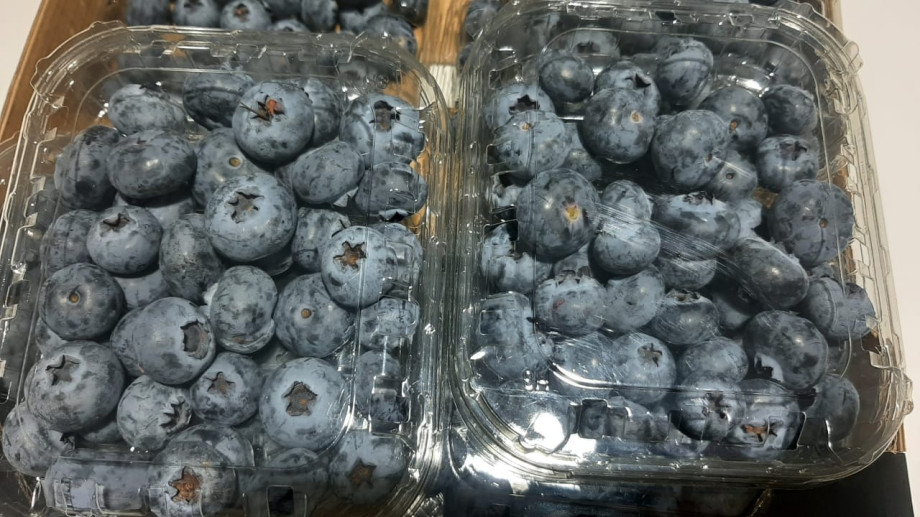The Chilean blueberry industry needs some adjustments to achieve greater competitiveness and consistency. A difficult road, but with a solid base of strengths to build on.
A few years ago, when people talked about blueberries in Chile and around the world, they thought of a very productive, rather rustic plant, without any great sophistication. But since then, much progress has been made in cultivation and industry, and today we have a wide choice of varieties, many of them club varieties, developed by the exporting companies themselves. Thanks to this phenomenon, we have seen production areas expand to the most remote places, many of which I have visited during my years of work.
As this part of the industry has blossomed, so has everything related to the technology to make our blueberries travel and arrive safely, starting tentatively with the use of certain grape and cherry products, atmospheric bags, generators, caps, various types and concentrations of gas for the container, a wide range of perforated bags and packaging, which expand the range of packages that multiply infinitely given the large number of customers who enjoy this commodity worldwide 365 days a year.
With so much information, we have to consider that we are working with living things, which behave differently depending on where they are grown. Blueberries are a noble species, but if we consider these factors, we can say that our options are endless.
Getting back on track
The last few months have not been easy for the blueberry industry in Chile. When we read the previous lines, we think of what we have achieved, but the truth is that we must try to get back on track, considering the base we have today. We consider that, as children of rigour, we have developed and implemented many strategies to achieve the coveted perfect fruit. Therefore, we must work to improve our consistency in the period that is most congenial to us.
When it comes to challenges and opportunities, it is often difficult to take the first step in all areas of life. It is always the hardest, it does not get us out of trouble, but at least it allows us to move towards a new opportunity and to look objectively at what is there and begin to chart the way forward.
That is why it is very important to think that this is the first opportunity, i.e. to look for consistency, to change strategies, to harvest better, not to export all the fruit to stay within the industry and to start again to open a space towards 'Chile, fruit of exceptional quality', or whatever slogan you want to use, because the important thing is to keep our buyer informed and tell him 'come back for our fruit, we will do the best job we can to meet the expectations of the experience you are looking for'. Ultimately, the buyer is looking for an experience, a pleasant moment and a good memory to build loyalty.
Small and big adjustments
Whether it is changes in small strategies in the harvest chain, orchard, pruning, load reduction, pre-harvest management, etc., the important thing is to generate commitment in the teams and look for what applies to my particular situation, not what the neighbour does. Establish short-term corrective measures. Separate and on this basis do a second reading of the processes. We must be extremely self-critical and aware of what we package and export.
If a fruit does not produce or does not travel, do not pack it; why add costs if it will not reach its destination? Margins are already too tight. Costs have risen significantly in the last ten years and we have added costs that did not exist at the beginning of the production chain. It is like a tradition, when everything is harvested it is 'Chinese' quality. We need a change of mentality! As an industry we can no longer afford to have failures in the process.
We cannot think that a bag, a bin atmosphere or an automated process line can do what good separation and sorting, or a pre-harvest walk through the orchard to determine what to harvest, when and how. The detail of the orchard processes, combined with accurate and thorough harvesting, goes hand in hand with good post-harvest management. Post-harvest, we can only preserve the conditions in which the fruit arrives cold.
The determination of a correct harvest index, by variety and production area, is a basis we cannot avoid. We must determine and characterise the behaviour: it is essential to start the processes with information that allows us to make the right decisions. On this basis we can start the harvest and the subsequent processes; today firmness is no longer the basis, we need more information to tell us how our fruit behaves. This is the key to being competitive and repositioning Chile as a supplier of fruit that maintains consistency throughout the production season, whether it is one month or four months.
If we move towards more conscious processes, with more detail, up-to-date information by season, area and variety, we can have the possibility of achieving internal change within our domestic industry, which is reflected in what we bring to the world, so that we are considered within consumer preferences. If we look at it that way it seems complex, but once we make progress and look at how we can improve, we can see the opportunities that open up.
Logistics, the combination of technologies, whatever they may be, and proper cold management are steps in the production chain that only have a positive effect on the fruit if they work in the right way and if we achieve the right condition and consistency. It is a production chain, so each step depends on the previous one, nothing is isolated.
We have many strengths. We have always had long distances, we have travelled with our fruit and for that we have great experience and great technicians. The opportunities exist. We must work on them to consolidate Chile once again within a productive window as a producer country of quality fruit. World consumption continues to grow and so do the producing countries. The time for analysis is over, now is the time for action.
Source: Mundoagro
Paula del Valle Escalona, Quality, post-harvest and innovation consultant for MyBlueProject








